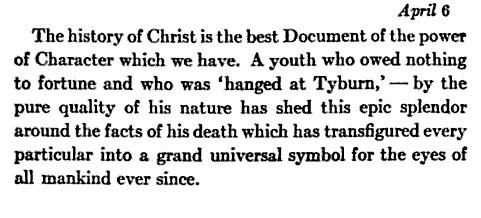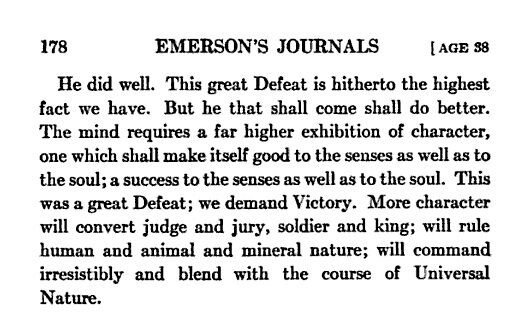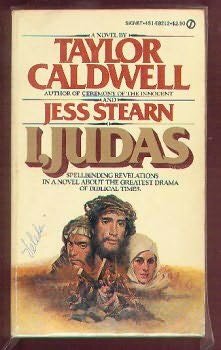She hears, upon that water wide without sound,
A voice that cries, “The tomb in Palestine
Is not the porch of spirits lingering.
It is the grave of Jesus, where he lay.”
—Wallace Stevens, ‘Sunday Morning’
“Poetry may make us from time to time a little more aware of the deeper, unnamed feelings which form the substratum of our being, to which we rarely penetrate; for our lives are mostly a constant evasion of ourselves.”
—T.S. Eliot
—Derrida on Christianity & Deconstruction
Hegel said we live in a speculative Good Friday—that the moment of philosophy is to think of God’s death, his absence, forseeing at least a hundred years the 20th century. Was there ever a century more sure and fraught with such an absence, devoid of absolute goods, of whatever Christianity meant, beyond its corruptions, scandals and inglorious crusades?
502 (Johnson)
At least — to pray — is left — is left —
Oh Jesus — in the Air —
I know not which thy chamber is —
I’m knocking — everywhere —
Thou settest Earthquake in the South —
And Maelstrom, in the Sea —
Say, Jesus Christ of Nazareth —
Hast thou no Arm for Me?
—Emily Dickinson
To Him that was Crucified
My spirit to yours, dear brother;
Do not mind because many, sounding your name, do not understand you;
I do not sound your name, but I understand you, (there are others also;)
I specify you with joy, O my comrade, to salute you, and to salute those who are with you, before and since—and those to come also,
That we all labor together, transmitting the same charge and succession; 5
We few, equals, indifferent of lands, indifferent of times;
We, enclosers of all continents, all castes—allowers of all theologies,
Compassionaters, perceivers, rapport of men,
We walk silent among disputes and assertions, but reject not the disputers, nor any thing that is asserted;
We hear the bawling and din—we are reach’d at by divisions, jealousies, recriminations on every side, 10
They close peremptorily upon us, to surround us, my comrade,
Yet we walk unheld, free, the whole earth over, journeying up and down, till we make our ineffaceable mark upon time and the diverse eras,
Till we saturate time and eras, that the men and women of races, ages to come, may prove brethren and lovers, as we are.
—Walt Whitman
Today is Holy Saturday, perhaps the least thought upon, least looked upon day in the Easter Triduum. But it has in the last few years come to epitomize for me my own life, spiritual and otherwise, where the pomp and majesty of supernatural events ceases; no gods dying, no gods reborn—merely dormancy on all fronts. This is the day when Jesus lay within his tomb; when the great hoax of the messiah was over; when if there was a hell, Christ descended.
Like many others, reprobate poets included, Jesus Christ continues to be a keen fascination—tantalizing, provocative, elusive, unforgettable. No character of literature—not Don Quixote, not Hamlet, not Walt Whitman, not Emily Dickinson, to name only a few of the most formidable ever to be created by human imagination—can rival the shock and astonishment I had when learning about this specific figure. Was he a historical madman who preached a new idea, forgive? Was he a philosopher, like Buddha or Socrates, that simply wanted to cure ignorance with peace, and noble deeds of charity? Or was he something more? God or human, or both—Christ is the supremest fiction—and yet he’s someone I talk little about (religions may be public matters but faith is always private), being a lapsed Catholic (redundancy?), being someone who hasn’t gone to Church and received communion since July 2004. And yet there was a time, as some of my friends know, when I wanted nothing more than to envision myself as a Catholic priest. In high school, I read a book called “I, Judas” which sparked my imagination into a pure rapture of fever. Then I watched Zeferelli’s masterpiece, “Jesus of Nazareth,” which was filmed with shots to mirror actual paintings from the Renaissance by the Old Masters. The film produced, for lack of a better term, a total conversion. It told me who I was, whatever Robert Powell (son of Elizabeth Taylor) dramatized. A stellar cast, full of drama, clocking in at over four hours, the film convinced me for the first time in my adolescent life that I had to ask larger questions than family dramas; I had to reflect on more than my own dizzy thought processes. Soon after, I read the Gospels, and by the time I finished Saint Matthew, in my heart, I felt something like a priesthood awaited. Month by month, I read more, saw the connection and relevance of the Catholic church to this old history, of a man and his disciples, and then decided if such a thing as a vocation existed, I felt a call to preach, to dedicate myself to God. In my callowness and intensity, I thought though that loving God meant rejecting all else, and my faith being built on a very inchoate, jerrybuilt consciousness soon demurred from such a radical decision. It was during this time I was also coming to terms with being gay, something that scandalized me deeply.
But how does this all get us to poetry? Samuel Johnson, a man who it is dangerous to disagree with, thought that prayer was too high and holy for the lowly provinces of poetry, an artifical utterance. Though Johnson knew of Herbert and Donne, he didn’t have Hopkins or Christina Rosetti, or Geoffrey Hill. I can’t say whether or not he’s wrong—but I do believe poets have been deeply interested in questions of faith. Eliot, among them. In an essay I am in no state of mind to summarize or track down, Eliot rehearses this matter about whether poetry and belief can meet—how important it is that we share the beliefs of the work we read? To Harold Bloom, and many others less religious-minded than him, such an artist as Dante can be read as literature without loss. The greatness of it is not for its dogmatic assertions, for its religious doctrines or philosophies. Perhaps this bring us back to the problem of what a poet makes of his materials—are the materials of art irrelevant? Are we simply interested in what an artist does with those materials? This is the disinterested, mostly secularly, attitude of many authorities, Keats foremost, who espouses disinterestedness as the key to produce and appreciate art. As Eliot even himself says, reading Rilke’s ‘Duino Elegies,’ it is not important that we agree with the muddle of his life-philosophy – but only see into the poetic rhetoric he exhorts and exults in. But Dante is a persistent challenge – Blake also.

The philosopher Richard Kearney has written in his new book, called Anatheism, about an attitude and mindset which approaches God after God – realizing how dismantled, impossible and unsettled a simple Christian faith must be for the postmodern mind. I can’t help feeling drawn to such a new approach, as I am myself often in love with such worldly authors who in their own way have wrestled, and tackled with, the God question. That is, the absence of God, or: What Comes Next. Derrida. Beckett. Stevens. Dickinson. Blake. Whitman. Hart Crane. They aren’t dogmatic followers of Sect of Creed – how could that be respectably fashionable for arch individualists? – but neither can they, on the other hand, ignore hearing the long withdrawing roar of the Sea of Faith.

No matter where we turn, God creeps into the picture — even on Holy Saturday — in our media-blitzed lives — when faith seems so irrelevant, so in the hand of fanatics and madmen eager to blow up or imperialize the world. The best lack all conviction, / The worst are full of passionate intensity. Christ casts quite a shadow over some great minds, artists and poets who even turned away, weren’t interested in God Talk, some downright hostilely rejected the plausibility of Resurrection. Safe in their Alabaster Chambers / Sleep the meek members of the Resurrection. For some – this post may be idle nostalgia. Memoir drivel. Propaganda. And yet, even if only a matter of all-too human grief, we dream of returns. I for one, hope as TSE said of Tennyson, that I may be at least religious for the degree of my doubt, if not my faith.
| The Everlasting Gospel |
| By William Blake (1757–1827) |





Bishop ‘Rooster’
That’s great, Adam, really very, very cool. I’ve always liked this day without god too, and I really like what you’ve done here. Excellent.
Learned and thoughtful essay, written with honesty and sincerity.